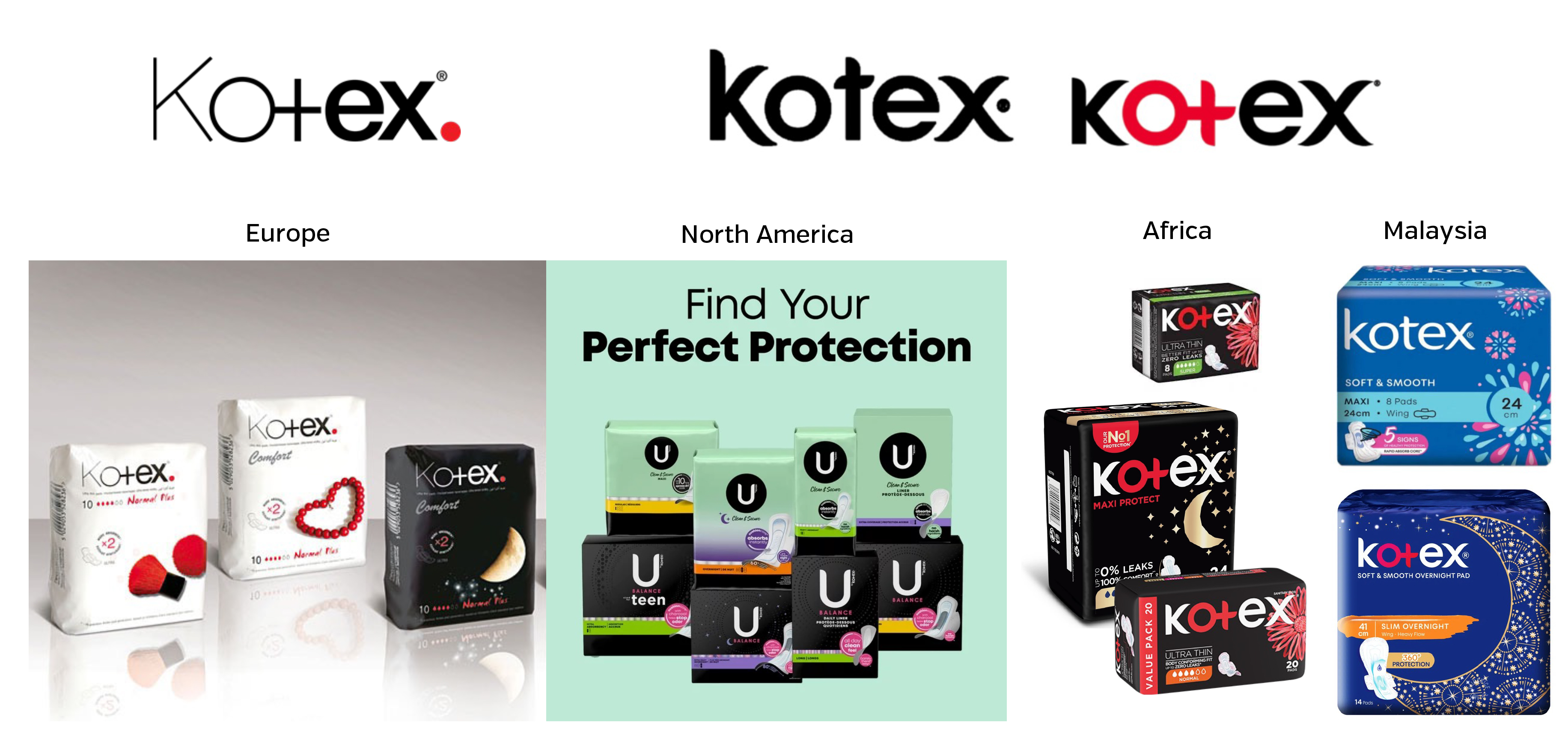Business,
Branding,
Brand Development
Global brand positioning and perceptions
By Elena Herweyer | Mar 02 2024
What is a global brand positioning?
In our increasingly interconnected world, businesses no longer operate within the confines of geographical borders. With the rise of social media, e-commerce, and digital communication channels, companies now have the opportunity to reach consumers on a global scale like never before.Expanding into international markets brings forth a unique set of challenges and opportunities, particularly concerning global brand positioning.
Understanding global brand positioning
A prime example of the complexities of global brand positioning can be seen in the case of Kotex. The brand's image, identity and guidelines vary significantly across different markets, with brand messages, packaging and logos tailored to suit the preferences of specific regions. What works in Canada may not necessarily resonate in Europe or Malaysia. This variation highlights the importance of adapting brand presentation to the unique characteristics of each geography.Challenges of building a global brand
One challenge when it comes to global brand positioning is navigating local culture. Each country and region have their own distinct cultural nuances, values and preferences, making it crucial for businesses to earn the population's receptivity, by deeply understanding the diverse global market landscape. This requires conducting comprehensive market research to develop a successful strategy for positioning a global brand while ensuring things are considered from a cultural sensitivity standpoint.Another challenge stems from local legislation, which varies from one market to another. Companies must adapt their branding and marketing strategies to comply with local regulations, which can significantly impact their ability to effectively operate and market their products or services.
Supporting the local economy is also a key consideration for global brands. As the trend towards appreciating local economies grows, global brands must strike a balance between their global presence and supporting local communities. Failure to do so can result in backlash and loss of brand credibility.
Strategies for global brand positioning
Navigating the challenges of global brand positioning requires businesses to embrace flexibility and adaptability. This involves fine-tuning brand messaging and identity to align seamlessly with the distinct attributes of each market while maintaining consistency with the brand's fundamental values. Gaining insights into regional preferences is essential for crafting effective strategies that resonate with local audiences.Tactical marketing approaches, like Coca-Cola's community engagement strategies, highlight the significance of understanding and resonating with diverse cultures to drive brand affinity and longevity.
Advantages of global brand positioning
Despite the challenges, global brand positioning offers numerous advantages for businesses. By expanding reach to new markets, brands can attract more clients, increase sales and elevate brand value. Global branding also presents opportunities to discover new market needs and achieve better return on investment through targeted marketing efforts.Moreover, global brands can leverage their global presence, resources and brand recognition to strengthen their position in the market and open up new revenue channels for business growth.
Final thoughts
Navigating global brand positioning involves overcoming challenges while capitalizing on the opportunities presented by an interconnected world. By embracing flexibility, adapting strategies and maintaining authenticity and consistency with fundamental brand values, businesses can position themselves for success in diverse cultural landscapes.Ultimately, global brand positioning is about expanding market reach while also building meaningful connections with local audiences worldwide.




